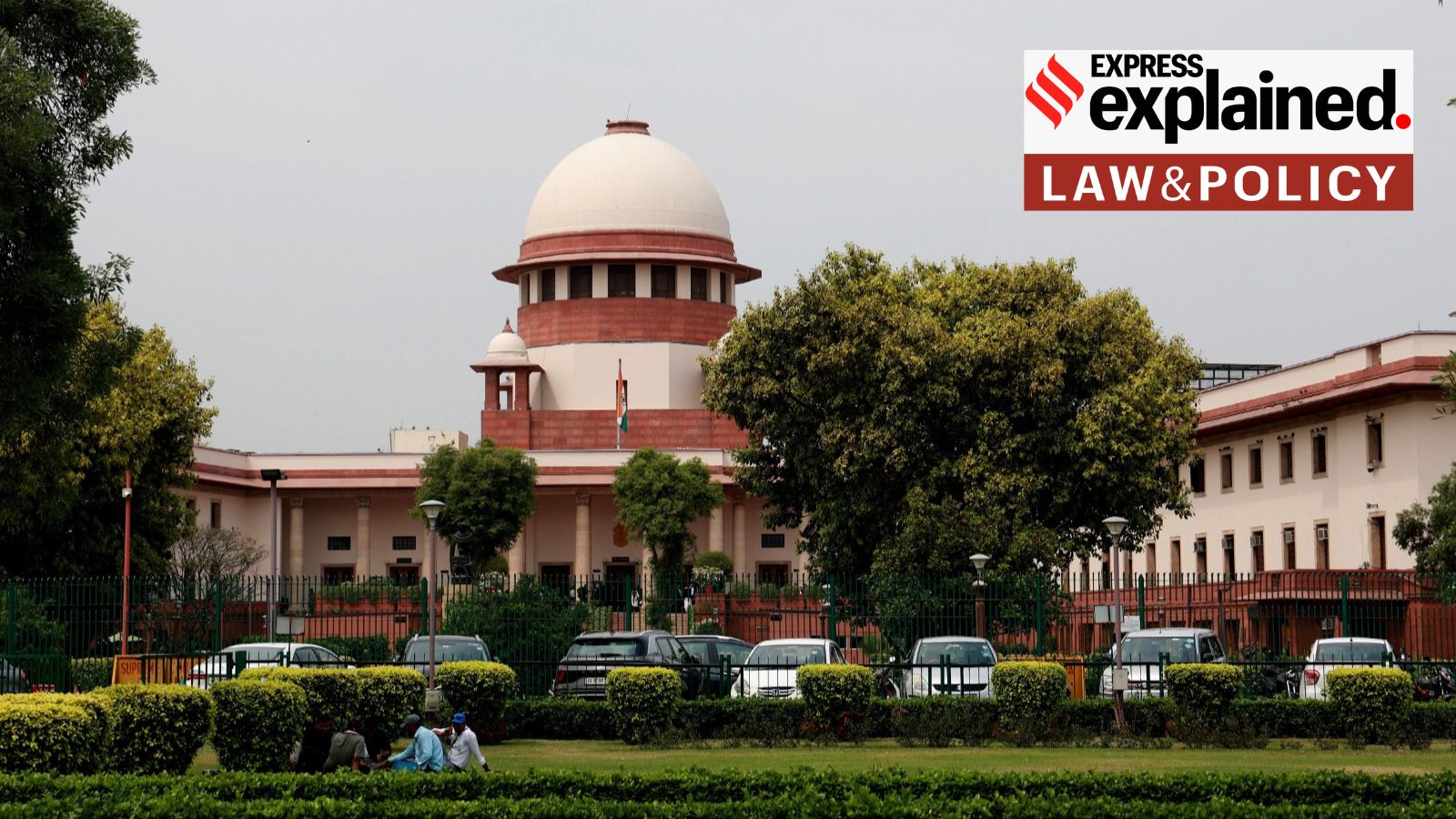Supreme Court to review PMLA verdict: what is the case?
The Supreme Court rarely entertains reviews of its rulings, except on narrow grounds to correct grave errors that have resulted in a miscarriage of justice.
 The Supreme Court will review on August 28 its decision to uphold key provisions of the Prevention of Money Laundering Act, 2002 (PMLA). (File photo)
The Supreme Court will review on August 28 its decision to uphold key provisions of the Prevention of Money Laundering Act, 2002 (PMLA). (File photo)The Supreme Court has deferred to August 28 reviewing its decision to uphold key provisions of the Prevention of Money Laundering Act, 2002 (PMLA). A three-judge special bench comprising Justices Surya Kant, C T Ravikumar, and Ujjal Bhuyan will hear the case.
What is the case?
On July 27, 2022, the Supreme Court upheld key provisions of the PMLA in Vijay Madanlal Choudhary v. Union of India. In the 540-page ruling, the SC accepted the government’s arguments on virtually every aspect that was challenged by the petitioners: from reversing the presumption of innocence while granting bail to passing the amendments as a Money Bill under the Finance Act to defining the contours of the powers of the Enforcement Directorate (ED).
A month later, on August 25th, 2022, another three-judge bench decided to hear a petition seeking a review of the Madanlal decision, filed by Congress MP Karti Chidambaram. The bench comprising then Chief Justice of India N V Ramana and Justices Dinesh Maheshwari and C T Ravikumar stated “at least two of the issues raised in the instant petition requires consideration.”
What are the grounds for review?
BAIL PROVISIONS: The SC verdict in Madanlal, citing a compelling interest in imposing stringent bail conditions for economic offences, upheld the bail provisions under PMLA that impose a reverse burden of proof on the accused.
The petitioners have argued that “in the absence of an FIR (or equivalent), Complaint (charge sheet), case diary (not maintained), and documents relied upon by the prosecution, no accused can present facts and submissions to persuade the Special Court to believe that he is not guilty of such offence”.
ENFORCEMENT DIRECTORATE DISTINCT FROM “POLICE”: The SC verdict in Madanlal upheld Section 50 of PMLA that empowers ED officials to record statements on oath from any person. This is admissible in court, unlike statements or confessions made to the police. The verdict held that officers of the ED are not “police officers”, and ‘investigations’ were “inquiries”. In line with this reading, the SC also said that the ED need not supply a copy of the Enforcement Case Information Report (ECIR) with an arrested person.
The petitioners have argued that SC has not taken into account certain obvious provisions which give penal powers to the ED while making this determination.
How is a judgment reviewed?
A ruling by the Supreme Court is final and binding. However, Article 137 of the Constitution grants the SC the power to review its judgments or orders. A review petition must be filed within 30 days of the pronouncement of the judgment. Except in cases of death penalty, review petitions are heard through “circulation” by judges in their chambers, and not in an open court. Lawyers make their case through written submissions and not oral arguments. The judges who passed the verdict decide on the review petition as well.
The SC rarely entertains reviews of its rulings. A review is allowed on narrow grounds to correct grave errors that have resulted in a miscarriage of justice. “A mistake apparent on the face of record” is one of the grounds on which a case for review is made. This mistake, the court has said, must be glaring and obvious — such as relying on case law that is invalid.
- 01
- 02
- 03
- 04
- 05






































